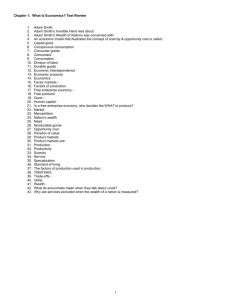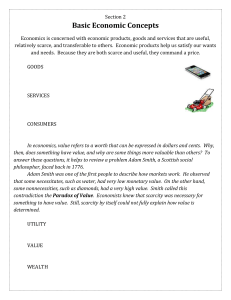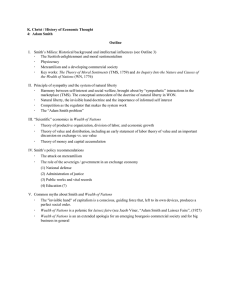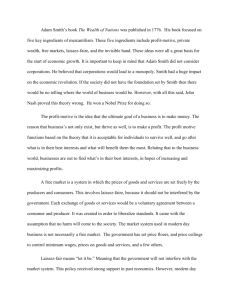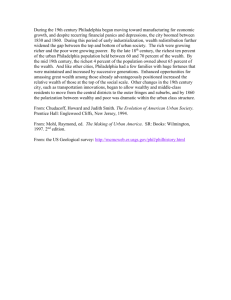The Wealth of Nations by Adam Smith (1723
advertisement
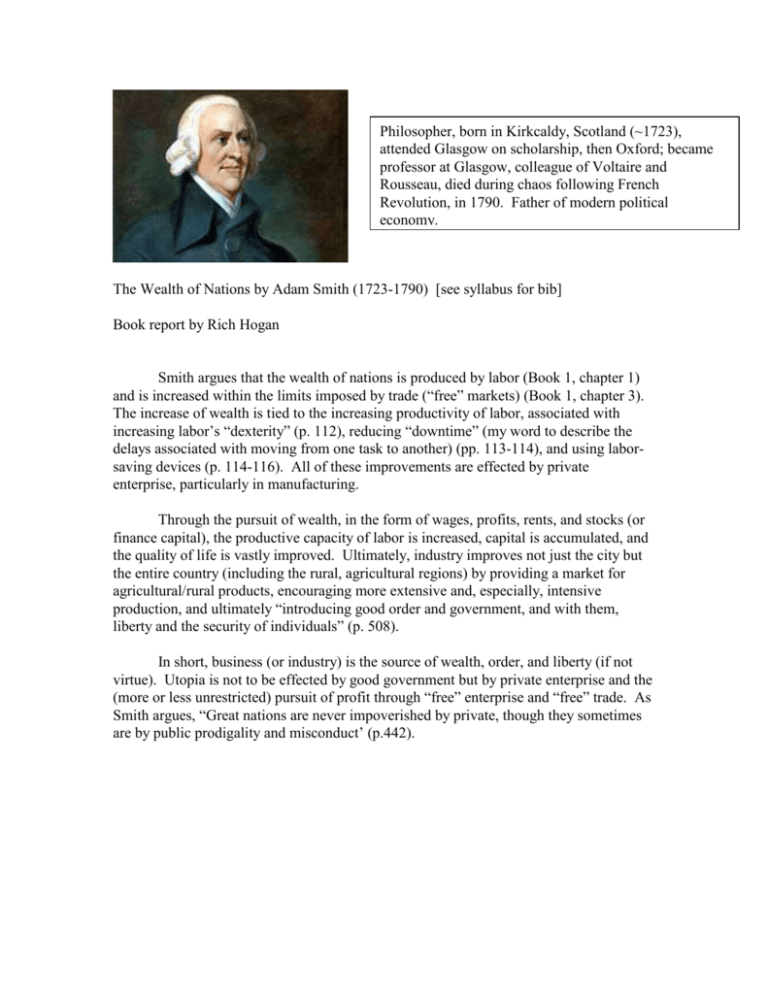
Philosopher, born in Kirkcaldy, Scotland (~1723), attended Glasgow on scholarship, then Oxford; became professor at Glasgow, colleague of Voltaire and Rousseau, died during chaos following French Revolution, in 1790. Father of modern political economy. The Wealth of Nations by Adam Smith (1723-1790) [see syllabus for bib] source: Book report by Rich Hogan http://www.econlib.org/library/Enc/bios/Smith.html Smith argues that the wealth of nations is produced by labor (Book 1, chapter 1) and is increased within the limits imposed by trade (“free” markets) (Book 1, chapter 3). The increase of wealth is tied to the increasing productivity of labor, associated with increasing labor’s “dexterity” (p. 112), reducing “downtime” (my word to describe the delays associated with moving from one task to another) (pp. 113-114), and using laborsaving devices (p. 114-116). All of these improvements are effected by private enterprise, particularly in manufacturing. Through the pursuit of wealth, in the form of wages, profits, rents, and stocks (or finance capital), the productive capacity of labor is increased, capital is accumulated, and the quality of life is vastly improved. Ultimately, industry improves not just the city but the entire country (including the rural, agricultural regions) by providing a market for agricultural/rural products, encouraging more extensive and, especially, intensive production, and ultimately “introducing good order and government, and with them, liberty and the security of individuals” (p. 508). In short, business (or industry) is the source of wealth, order, and liberty (if not virtue). Utopia is not to be effected by good government but by private enterprise and the (more or less unrestricted) pursuit of profit through “free” enterprise and “free” trade. As Smith argues, “Great nations are never impoverished by private, though they sometimes are by public prodigality and misconduct’ (p.442).
